- DADDYCARE (U.S. Ser. No. 98754310) - WOLFCAR (U.S. Ser. No. 98755901) - UNITED HOOLIGANS (U.S. Ser. No. 98753146) - SALTY FLAG SURF COMPANY (U.S. Ser. No. 98753443) - FLAMES OF FREEDOM (U.S. Ser. No. 98753577) - PICKSBURGH (U.S. Ser. No. 98753583) - MUDDLING THROUGH MIDDLE AGE (U.S. Ser. No. 98754844) - SOUL THERAPY (U.S. Ser. No. 98755254) - MAGIC PASSPORT (U.S. Ser. No. 98755264) - THIRSTY DUMPLING (U.S. Ser. No. 98755463) - AI AGENT SHERLOCK (U.S. Ser. No. 98755559) - THE GASLIGHT DISTRICT (U.S. Ser. No. 98704651) - 2028 SUMMER OLYMPICS (U.S. Ser. No. 98707274) - ESSENTIALS BY DRILL (U.S. Ser. No. 98707385) - LOUDBIRD (U.S. Ser. No. 98705209) - GODLY (U.S. Ser. No. 98705235) - AN ELF'S STORY (U.S. Ser. No. 98705240) - PETSMART PARC (U.S. Ser. No. 98705257) - BRAT PERVERSIONS (U.S. Ser. No. 98705684) - HOMIES (U.S. Ser. No. 98708593) - FOLLOW FAMOUS (U.S. Ser. No. 98708647) - SMART SURROGACY (U.S. Ser. No. 98708650) - TJ'S BURRITOS (U.S. Ser. No. 98708654) - MOONSHOT (U.S. Ser. No. 98704994) - CAT BUTT (U.S. Ser. No. 98705143) - VALIUM (U.S. Ser. No. 98704761) - KINDER KROWNS (U.S. Ser. No. 98704787) - CRAB KING (U.S. Ser. No. 98704885) - SNACKYSNACKS (U.S. Ser. No. 98666959) - COKEWITHNOODLES (U.S. Ser. No. 98695432) - SPILT MILK (U.S. Ser. No. 98619662) - PEWDIPIE (U.S. Ser. No. 98619765) - CRAPPY CLEANUP (U.S. Ser. No. 98595578) - PSYCHO SOBER CREW (U.S. Ser. No. 98610469) - ESSENTIALS MEDISPA & SALON (U.S. Ser. No. 98568262) - MR. SHARPIE SHARPENING SERVICE (U.S. Ser. No. 98452295) - KYLE GELLIS (U.S. Ser. No. 98545744) - DON'T BE JELLY (U.S. Ser. No. 98347004) - COMPETITION CRUSHER (U.S. Ser. No. 98366255) - TOM PHUCKERY (U.S. Ser. No. 97544589) - THE SCREENWRITER NURSE (U.S. Ser. No. 98543889) - SEVEN-FIGURE BROKE (U.S. Ser. No. 98546334) - COWGIRL EXTENSIONS (U.S. Ser. No. 98595865) - THE ORIGINAL STRETCHLACE (U.S. Ser. No. 98543559) - PROCESSING PARTNER THE TOLL ROADS (U.S. Ser. No. 98524376) - MISS AMERICAN SUGAR BABY PAGEANT (U.S. Ser. No. 98595824) - THE ARENA AT DAVE & BUSTER'S (U.S. Ser. No. 98290206) - KEETOOWAH (U.S. Ser. No. 98567367) - AUGUST DAZE (U.S. Ser. No. 98524233) - CALL ME SIR (U.S. Ser. No. 98524138) - CHURROLICIOUS (U.S. Ser. No. 98525685) - HELIPAD (U.S. Ser. No. 98523999) - REINCARNATION (U.S. Ser. No. 98523163) - FITCALIFORNIA (U.S. Ser. No. 98523120) - CHICAPEX (U.S. Ser. No. 98523104) - NEPTUNE HEALTH (U.S. Ser. No. 98469982) - TRUCK STOP DIVAS (U.S. Ser. No. 98568210) - ESTRELA (U.S. Ser. No. 98474324) - MITANLUXI (U.S. Ser. No. 98476853) - HUMILIFE (U.S. Ser. No. 98476921) - DLONE (U.S. Ser. No. 98476935) - KVEODE (U.S. Ser. No. 98476946) - KULLOTTA (U.S. Ser. No. 98476985) - ARMSTAR (U.S. Ser. No. 98477003) - AFSHAN (U.S. Ser. No. 98477020) - SMOOCHIE KITTY (U.S. Ser. No. 98477030) - LIGTHOP (U.S. Ser. No. 98477031) - THE PICKLEBALLER (U.S. Ser. No. 98524309) - FAFUBOTIF (U.S. Ser. No. 98477033) - MOTHERFLUKER (U.S. Ser. No. 98524640) - SEE YOU AT THE TOP (U.S. Ser. No. 98524841) - ISLAND SPICE TASTE OF THE ISLAND (U.S. Ser. No. 98477040) - DOBLE R (U.S. Ser. No. 98477075) - EEK & BOO (U.S. Ser. No. 98524450) - FIRE&GANG (U.S. Ser. No. 98477076) - DEEPREDCOAST (U.S. Ser. No. 98477085) - BEAR CREEK NUTS (U.S. Ser. No. 98524599) - MONBLEU (U.S. Ser. No. 98477187) - CLEAN ROOTS (U.S. Ser. No. 98477210) - EAGLE MOUNTAIN (U.S. Ser. No. 98477233) - AVON BOATS (U.S. Ser. No. 98477250) - HEAVENSTONE (U.S. Ser. No. 98477262) - SHALLONLY (U.S. Ser. No. 98477279) - POORALAEN (U.S. Ser. No. 98477287) - FIMOSON (U.S. Ser. No. 98477289) - THE DRUNK GUEST (U.S. Ser. No. 98477297) - BETTERFLEET (U.S. Ser. No. 98477303) - DADS (U.S. Ser. No. 98477361) - STOP AND BUY (U.S. Ser. No. 98477398) - LAST WAR - EMPIRE Z (U.S. Ser. No. 98477414) - SKYPLUS (U.S. Ser. No. 98477536) - ELEKTROPLATE (U.S. Ser. No. 98477551) - OLYMPDICS (U.S. Ser. No. 98477575) - CUDDLE WORKS (U.S. Ser. No. 98477580) - OONA WINES (U.S. Ser. No. 98477584) - WOLF-HAWK (U.S. Ser. No. 98477713) - HIGUARD (U.S. Ser. No. HIGUARD) - WEENDIYPTY (U.S. Ser. No. 98477799) - CAPITAL FOOTHOLD (U.S. Ser. No. 98477800) - PETIT N (U.S. Ser. No. 98477811) - OLIVIA JADE (U.S. Ser. No. 98477820) - POUPÉ (U.S. Ser. No. 98524667) - EXCELCARB (U.S. Ser. No. 98477828) - PENSKE TRUCK RENTAL (U.S. Ser. No. 98477829) - HUGHEAVEN (U.S. Ser. No. 98524687) - THE SENSORY STUDIO (U.S. Ser. No. 98477837) - WAVING FLAG (U.S. Ser. No. 98477881) - GLADIATRIX (U.S. Ser. No. 98477929) - SONOMA SMOKER (U.S. Ser. No. 98477998) - LATHE DRAGON (U.S. Ser. No. 98478063) - META FLO (U.S. Ser. No. 98478112) - SHAPESHIFTER (U.S. Ser. No. 98478189) - LEMONBEARS (U.S. Ser. No. 98478614) - MISSEYE (U.S. Ser. No. 98478618) - GOLSAN SCRUGGS (U.S. Ser. No. 98478645) - DOOPED DONUTS (U.S. Ser. No. 98478654) - RUCK FOBOCALLS (U.S. Ser. No. 98478675) - WAKEFIT (U.S. Ser. No. 98478707) - SEAMTYTO (U.S. Ser. No. 98478719) - NEPTUNE HEALTH (U.S. Ser. No. 98469982) - ESTRELA (U.S. Ser. No. 98474324) - HUMILIFE (U.S. Ser. No. 98476921) - HOOGASE (U.S. Ser. No. 98482516) - EKKOTONE (U.S. Ser. No. 98482500) - RADIO ACTIVE CREW (U.S. Ser. No. 98482499) - CREATED LOVE (U.S. Ser. No. 98482496) - BILLS BY A BILLION (U.S. Ser. No. 98482445) - KEY BOT (U.S. Ser. No. 98482439) - MILKYTREATS PREMIUM ICE CREAM (U.S. Ser. No. 98482413) - MED-ATLANTIC (U.S. Ser. No. 98482387) - SHEEP'S CLOTHING (U.S. Ser. No. 98482373) - PETROGEN (U.S. Ser. No. 98482368) - WAYFINDER (U.S. Ser. No. 98482363) - BLOCKINSIDER (U.S. Ser. No. 98482362) - BRIDES ARISE (U.S. Ser. No. 98482322) - BANDITPAY (U.S. Ser. No. 98482307) - JACK N GROOVE (U.S. Ser. No. 98482294) - FINALSITE (U.S. Ser. No. 98482285) - DM INFINITY (U.S. Ser. No. 98482267) - BLISSFUL BIRTHING (U.S. Ser. No. 98482253) - GLENNIETS (U.S. Ser. No. 98482202) - TABLETPAD (U.S. Ser. No. 98482180) - AUKRA (U.S. Ser. No. 98482160) - BELLEPEPPER CATS (U.S. Ser. No. 98482157) - THE SADDLERY (U.S. Ser. No. 98482156) - KICKIN' FLIPPIN' TRICKIN' (U.S. Ser. No. 98482148) - SHEWIN (U.S. Ser. No. 98482122) - GOOD FIGHT COFFEE (U.S. Ser. No. 98482119) - PLAY FOR CHANGE (U.S. Ser. No. 98482113) - SIMPLE SPREE GOODS (U.S. Ser. No. 98482020) - ZORO SELECT (U.S. Ser. No. 98482015) NEPTUNE HEALTH (U.S. Ser. No. 98469982) - OCTASTREAMELITEULTRA (U.S. Ser. No. 98473901) - ESTRELA (U.S. Ser. No. 98474324) - NTINGDE (U.S. Ser. No. 98474602) - MITANLUXI (U.S. Ser. No. 98476853) - HUMILIFE (U.S. Ser. No. 98476921) - DLONE (U.S. Ser. No. 98476935) - KVEODE (U.S. Ser. No. 98476946) - ZLSUEF (U.S. Ser. No. 98476948) - KULLOTTA (U.S. Ser. No. 98476985) - ARMSTAR (U.S. Ser. No. 98477003) - AFSHAN (U.S. Ser. No. 98477020) - LIGTHOP (U.S. Ser. No. 98477023) - SMOOCHIE KITTY (U.S. Ser. No. 98477030) - LIGTHOP (U.S. Ser. No. 98477031) - FAFUBOTIF (U.S. Ser. No. 98477033) - ISLAND SPICE TASTE OF THE ISLAND (U.S. Ser. No. 98477040) - DOBLE R (U.S. Ser. No. 98477075) - FIRE&GANG (U.S. Ser. No. 98477076) - DEEPREDCOAST (U.S. Ser. No. 98477085) - MONBLEU (U.S. Ser. No. 98477187) - CLEAN ROOTS (U.S. Ser. No. 98477210) - EAGLE MOUNTAIN (U.S. Ser. No. 98477233) - AVON BOATS (U.S. Ser. No. 98477250) - HEAVENSTONE (U.S. Ser. No. 98477262) - SHALLONLY (U.S. Ser. No. 98477279) - POORALAEN (U.S. Ser. No. 98477287) - FIMOSON (U.S. Ser. No. 98477289) - THE DRUNK GUEST (U.S. Ser. No. 98477297) - BETTERFLEET (U.S. Ser. No. 98477303) - DADS (U.S. Ser. No. 98477361) - STOP AND BUY (U.S. Ser. No. 98477398) - LAST WAR - EMPIRE Z (U.S. Ser. No. 98477414) - SKYPLUS (U.S. Ser. No. 98477536) - ELEKTROPLATE (U.S. Ser. No. 98477551) - OLYMPDICS (U.S. Ser. No. 98477575) - CUDDLE WORKS (U.S. Ser. No. 98477580) - OONA WINES (U.S. Ser. No. 98477584) - WOLF-HAWK (U.S. Ser. No. 98477713) - HIGUARD (U.S. Ser. No. HIGUARD) - WEENDIYPTY (U.S. Ser. No. 98477799) - CAPITAL FOOTHOLD (U.S. Ser. No. 98477800) - PETIT N (U.S. Ser. No. 98477811) - OLIVIA JADE (U.S. Ser. No. 98477820) - EXCELCARB (U.S. Ser. No. 98477828) - PENSKE TRUCK RENTAL (U.S. Ser. No. 98477829) - THE SENSORY STUDIO (U.S. Ser. No. 98477837) - WAVING FLAG (U.S. Ser. No. 98477881) - GLADIATRIX (U.S. Ser. No. 98477929) - SONOMA SMOKER (U.S. Ser. No. 98477998) - LATHE DRAGON (U.S. Ser. No. 98478063) - META FLO (U.S. Ser. No. 98478112) - SHAPESHIFTER (U.S. Ser. No. 98478189) - LEMONBEARS (U.S. Ser. No. 98478614) - MISSEYE (U.S. Ser. No. 98478618) - GOLSAN SCRUGGS (U.S. Ser. No. 98478645) - DOOPED DONUTS (U.S. Ser. No. 98478654) - RUCK FOBOCALLS (U.S. Ser. No. 98478675) - WAKEFIT (U.S. Ser. No. 98478707) - SEAMTYTO (U.S. Ser. No. 98478719) - NEPTUNE HEALTH (U.S. Ser. No. 98469982) - ESTRELA (U.S. Ser. No. 98474324) - HUMILIFE (U.S. Ser. No. 98476921) - HOOGASE (U.S. Ser. No. 98482516) - EKKOTONE (U.S. Ser. No. 98482500) - RADIO ACTIVE CREW (U.S. Ser. No. 98482499) - CREATED LOVE (U.S. Ser. No. 98482496) - BILLS BY A BILLION (U.S. Ser. No. 98482445) - KEY BOT (U.S. Ser. No. 98482439) - MILKYTREATS PREMIUM ICE CREAM (U.S. Ser. No. 98482413) - MED-ATLANTIC (U.S. Ser. No. 98482387) - SHEEP'S CLOTHING (U.S. Ser. No. 98482373) - PETROGEN (U.S. Ser. No. 98482368) - WAYFINDER (U.S. Ser. No. 98482363) - BLOCKINSIDER (U.S. Ser. No. 98482362) - BRIDES ARISE (U.S. Ser. No. 98482322) - BANDITPAY (U.S. Ser. No. 98482307) - JACK N GROOVE (U.S. Ser. No. 98482294) - FINALSITE (U.S. Ser. No. 98482285) - DM INFINITY (U.S. Ser. No. 98482267) - BLISSFUL BIRTHING (U.S. Ser. No. 98482253) - GLENNIETS (U.S. Ser. No. 98482202) - TABLETPAD (U.S. Ser. No. 98482180) - AUKRA (U.S. Ser. No. 98482160) - BELLEPEPPER CATS (U.S. Ser. No. 98482157) - THE SADDLERY (U.S. Ser. No. 98482156) - KICKIN' FLIPPIN' TRICKIN' (U.S. Ser. No. 98482148) - SHEWIN (U.S. Ser. No. 98482122) - GOOD FIGHT COFFEE (U.S. Ser. No. 98482119) - PLAY FOR CHANGE (U.S. Ser. No. 98482113) - SIMPLE SPREE GOODS (U.S. Ser. No. 98482020) - ZORO SELECT (U.S. Ser. No. 98482015) NEPTUNE HEALTH (U.S. Ser. No. 98469982) - OCTASTREAMELITEULTRA (U.S. Ser. No. 98473901) - ESTRELA (U.S. Ser. No. 98474324) - NTINGDE (U.S. Ser. No. 98474602) - MITANLUXI (U.S. Ser. No. 98476853) - HUMILIFE (U.S. Ser. No. 98476921) - DLONE (U.S. Ser. No. 98476935) - KVEODE (U.S. Ser. No. 98476946) - ZLSUEF (U.S. Ser. No. 98476948) - KULLOTTA (U.S. Ser. No. 98476985) - ARMSTAR (U.S. Ser. No. 98477003) - AFSHAN (U.S. Ser. No. 98477020) - LIGTHOP (U.S. Ser. No. 98477023) - SMOOCHIE KITTY (U.S. Ser. No. 98477030) - LIGTHOP (U.S. Ser. No. 98477031) - FAFUBOTIF (U.S. Ser. No. 98477033) - ISLAND SPICE TASTE OF THE ISLAND (U.S. Ser. No. 98477040) - DOBLE R (U.S. Ser. No. 98477075) - FIRE&GANG (U.S. Ser. No. 98477076) - DEEPREDCOAST (U.S. Ser. No. 98477085) - MONBLEU (U.S. Ser. No. 98477187) - CLEAN ROOTS (U.S. Ser. No. 98477210) - EAGLE MOUNTAIN (U.S. Ser. No. 98477233) - AVON BOATS (U.S. Ser. No. 98477250) - HEAVENSTONE (U.S. Ser. No. 98477262) - SHALLONLY (U.S. Ser. No. 98477279) - POORALAEN (U.S. Ser. No. 98477287) - FIMOSON (U.S. Ser. No. 98477289) - THE DRUNK GUEST (U.S. Ser. No. 98477297) - BETTERFLEET (U.S. Ser. No. 98477303) - DADS (U.S. Ser. No. 98477361) - STOP AND BUY (U.S. Ser. No. 98477398) - LAST WAR - EMPIRE Z (U.S. Ser. No. 98477414) - SKYPLUS (U.S. Ser. No. 98477536) - ELEKTROPLATE (U.S. Ser. No. 98477551) - OLYMPDICS (U.S. Ser. No. 98477575) - CUDDLE WORKS (U.S. Ser. No. 98477580) - OONA WINES (U.S. Ser. No. 98477584) - WOLF-HAWK (U.S. Ser. No. 98477713) - HIGUARD (U.S. Ser. No. HIGUARD) - WEENDIYPTY (U.S. Ser. No. 98477799) - CAPITAL FOOTHOLD (U.S. Ser. No. 98477800) - PETIT N (U.S. Ser. No. 98477811) - OLIVIA JADE (U.S. Ser. No. 98477820) - EXCELCARB (U.S. Ser. No. 98477828) - PENSKE TRUCK RENTAL (U.S. Ser. No. 98477829) - THE SENSORY STUDIO (U.S. Ser. No. 98477837) - WAVING FLAG (U.S. Ser. No. 98477881) - GLADIATRIX (U.S. Ser. No. 98477929) - SONOMA SMOKER (U.S. Ser. No. 98477998) - LATHE DRAGON (U.S. Ser. No. 98478063) - META FLO (U.S. Ser. No. 98478112) - SHAPESHIFTER (U.S. Ser. No. 98478189) - LEMONBEARS (U.S. Ser. No. 98478614) - MISSEYE (U.S. Ser. No. 98478618) - GOLSAN SCRUGGS (U.S. Ser. No. 98478645) - DOOPED DONUTS (U.S. Ser. No. 98478654) - RUCK FOBOCALLS (U.S. Ser. No. 98478675) - WAKEFIT (U.S. Ser. No. 98478707) - SEAMTYTO (U.S. Ser. No. 98478719) - NEPTUNE HE NEPTUNE HEALTH (U.S. Ser. No. 98469982) - OCTASTREAMELITEULTRA (U.S. Ser. No. 98473901) - ESTRELA (U.S. Ser. No. 98474324) - NTINGDE (U.S. Ser. No. 98474602) - MITANLUXI (U.S. Ser. No. 98476853) - HUMILIFE (U.S. Ser. No. 98476921) - DLONE (U.S. Ser. No. 98476935) - KVEODE (U.S. Ser. No. 98476946) - ZLSUEF (U.S. Ser. No. 98476948) - KULLOTTA (U.S. Ser. No. 98476985) - ARMSTAR (U.S. Ser. No. 98477003) - AFSHAN (U.S. Ser. No. 98477020) - LIGTHOP (U.S. Ser. No. 98477023) - SMOOCHIE KITTY (U.S. Ser. No. 98477030) - LIGTHOP (U.S. Ser. No. 98477031) - FAFUBOTIF (U.S. Ser. No. 98477033) - ISLAND SPICE TASTE OF THE ISLAND (U.S. Ser. No. 98477040) - DOBLE R (U.S. Ser. No. 98477075) - FIRE&GANG (U.S. Ser. No. 98477076) - DEEPREDCOAST (U.S. Ser. No. 98477085) - MONBLEU (U.S. Ser. No. 98477187) - CLEAN ROOTS (U.S. Ser. No. 98477210) - EAGLE MOUNTAIN (U.S. Ser. No. 98477233) - AVON BOATS (U.S. Ser. No. 98477250) - HEAVENSTONE (U.S. Ser. No. 98477262) - SHALLONLY (U.S. Ser. No. 98477279) - POORALAEN (U.S. Ser. No. 98477287) - FIMOSON (U.S. Ser. No. 98477289) - THE DRUNK GUEST (U.S. Ser. No. 98477297) - BETTERFLEET (U.S. Ser. No. 98477303) - DADS (U.S. Ser. No. 98477361) - STOP AND BUY (U.S. Ser. No. 98477398) - LAST WAR - EMPIRE Z (U.S. Ser. No. 98477414) - SKYPLUS (U.S. Ser. No. 98477536) - ELEKTROPLATE (U.S. Ser. No. 98477551) - OLYMPDICS (U.S. Ser. No. 98477575) - CUDDLE WORKS (U.S. Ser. No. 98477580) - OONA WINES (U.S. Ser. No. 98477584) - WOLF-HAWK (U.S. Ser. No. 98477713) - HIGUARD (U.S. Ser. No. HIGUARD) - WEENDIYPTY (U.S. Ser. No. 98477799) - CAPITAL FOOTHOLD (U.S. Ser. No. 98477800) - PETIT N (U.S. Ser. No. 98477811) - OLIVIA JADE (U.S. Ser. No. 98477820) - EXCELCARB (U.S. Ser. No. 98477828) - PENSKE TRUCK RENTAL (U.S. Ser. No. 98477829) - THE SENSORY STUDIO (U.S. Ser. No. 98477837) - WAVING FLAG (U.S. Ser. No. 98477881) - GLADIATRIX (U.S. Ser. No. 98477929) - SONOMA SMOKER (U.S. Ser. No. 98477998) - LATHE DRAGON (U.S. Ser. No. 98478063) - META FLO (U.S. Ser. No. 98478112) - SHAPESHIFTER (U.S. Ser. No. 98478189) - LEMONBEARS (U.S. Ser. No. 98478614) - MISSEYE (U.S. Ser. No. 98478618) - GOLSAN SCRUGGS (U.S. Ser. No. 98478645) - DOOPED DONUTS (U.S. Ser. No. 98478654) - RUCK FOBOCALLS (U.S. Ser. No. 98478675) - WAKEFIT (U.S. Ser. No. 98478707) - SEAMTYTO (U.S. Ser. No. 98478719) - NEPTUNE HEALTH (U.S. Ser. No. 98469982) - ESTRELA (U.S. Ser. No. 98474324) - HUMILIFE (U.S. Ser. No. 98476921) - HOOGASE (U.S. Ser. No. 98482516) - EKKOTONE (U.S. Ser. No. 98482500) - RADIO ACTIVE CREW (U.S. Ser. No. 98482499) - CREATED LOVE (U.S. Ser. No. 98482496) - BILLS BY A BILLION (U.S. Ser. No. 98482445) - KEY BOT (U.S. Ser. No. 98482439) - MILKYTREATS PREMIUM ICE CREAM (U.S. Ser. No. 98482413) - MED-ATLANTIC (U.S. Ser. No. 98482387) - SHEEP'S CLOTHING (U.S. Ser. No. 98482373) - PETROGEN (U.S. Ser. No. 98482368) - WAYFINDER (U.S. Ser. No. 98482363) - BLOCKINSIDER (U.S. Ser. No. 98482362) - BRIDES ARISE (U.S. Ser. No. 98482322) - BANDITPAY (U.S. Ser. No. 98482307) - JACK N GROOVE (U.S. Ser. No. 98482294) - FINALSITE (U.S. Ser. No. 98482285) - DM INFINITY (U.S. Ser. No. 98482267) - BLISSFUL BIRTHING (U.S. Ser. No. 98482253) - GLENNIETS (U.S. Ser. No. 98482202) - TABLETPAD (U.S. Ser. No. 98482180) - AUKRA (U.S. Ser. No. 98482160) - BELLEPEPPER CATS (U.S. Ser. No. 98482157) - THE SADDLERY (U.S. Ser. No. 98482156) - KICKIN' FLIPPIN' TRICKIN' (U.S. Ser. No. 98482148) - SHEWIN (U.S. Ser. No. 98482122) - GOOD FIGHT COFFEE (U.S. Ser. No. 98482119) - PLAY FOR CHANGE (U.S. Ser. No. 98482113) - SIMPLE SPREE GOODS (U.S. Ser. No. 98482020) - ZORO SELECT (U.S. Ser. No. 98482015) NEPTUNE HEALTH (U.S. Ser. No. 98469982) - OCTASTREAMELITEULTRA (U.S. Ser. No. 98473901) - ESTRELA (U.S. Ser. No. 98474324) - NTINGDE (U.S. Ser. No. 98474602) - MITANLUXI (U.S. Ser. No. 98476853) - HUMILIFE (U.S. Ser. No. 98476921) - DLONE (U.S. Ser. No. 98476935) - KVEODE (U.S. Ser. No. 98476946) - ZLSUEF (U.S. Ser. No. 98476948) - KULLOTTA (U.S. Ser. No. 98476985) - ARMSTAR (U.S. Ser. No. 98477003) - AFSHAN (U.S. Ser. No. 98477020) - LIGTHOP (U.S. Ser. No. 98477023) - SMOOCHIE KITTY (U.S. Ser. No. 98477030) - LIGTHOP (U.S. Ser. No. 98477031) - FAFUBOTIF (U.S. Ser. No. 98477033) - ISLAND SPICE TASTE OF THE ISLAND (U.S. Ser. No. 98477040) - DOBLE R (U.S. Ser. No. 98477075) - FIRE&GANG (U.S. Ser. No. 98477076) - DEEPREDCOAST (U.S. Ser. No. 98477085) - MONBLEU (U.S. Ser. No. 98477187) - CLEAN ROOTS (U.S. Ser. No. 98477210) - EAGLE MOUNTAIN (U.S. Ser. No. 98477233) - AVON BOATS (U.S. Ser. No. 98477250) - HEAVENSTONE (U.S. Ser. No. 98477262) - SHALLONLY (U.S. Ser. No. 98477279) - POORALAEN (U.S. Ser. No. 98477287) - FIMOSON (U.S. Ser. No. 98477289) - THE DRUNK GUEST (U.S. Ser. No. 98477297) - BETTERFLEET (U.S. Ser. No. 98477303) - DADS (U.S. Ser. No. 98477361) - STOP AND BUY (U.S. Ser. No. 98477398) - LAST WAR - EMPIRE Z (U.S. Ser. No. 98477414) - SKYPLUS (U.S. Ser. No. 98477536) - ELEKTROPLATE (U.S. Ser. No. 98477551) - OLYMPDICS (U.S. Ser. No. 98477575) - CUDDLE WORKS (U.S. Ser. No. 98477580) - OONA WINES (U.S. Ser. No. 98477584) - WOLF-HAWK (U.S. Ser. No. 98477713) - HIGUARD (U.S. Ser. No. HIGUARD) - WEENDIYPTY (U.S. Ser. No. 98477799) - CAPITAL FOOTHOLD (U.S. Ser. No. 98477800) - PETIT N (U.S. Ser. No. 98477811) - OLIVIA JADE (U.S. Ser. No. 98477820) - EXCELCARB (U.S. Ser. No. 98477828) - PENSKE TRUCK RENTAL (U.S. Ser. No. 98477829) - THE SENSORY STUDIO (U.S. Ser. No. 98477837) - WAVING FLAG (U.S. Ser. No. 98477881) - GLADIATRIX (U.S. Ser. No. 98477929) - SONOMA SMOKER (U.S. Ser. No. 98477998) - LATHE DRAGON (U.S. Ser. No. 98478063) - META FLO (U.S. Ser. No. 98478112) - SHAPESHIFTER (U.S. Ser. No. 98478189) - LEMONBEARS (U.S. Ser. No. 98478614) - MISSEYE (U.S. Ser. No. 98478618) - GOLSAN SCRUGGS (U.S. Ser. No. 98478645) - DOOPED DONUTS (U.S. Ser. No. 98478654) - RUCK FOBOCALLS (U.S. Ser. No. 98478675) - WAKEFIT (U.S. Ser. No. 98478707) - SEAMTYTO (U.S. Ser. No. 98478719) - NEPTUNE HEALTH (U.S. Ser. No. 98469982) - ESTRELA (U.S. Ser. No. 98474324) - HUMILIFE (U.S. Ser. No. 98476921) - HOOGASE (U.S. Ser. No. 98482516) - EKKOTONE (U.S. Ser. No. 98482500) - RADIO ACTIVE CREW (U.S. Ser. No. 98482499) - CREATED LOVE (U.S. Ser. No. 98482496) - BILLS BY A BILLION (U.S. Ser. No. 98482445) - KEY BOT (U.S. Ser. No. 98482439) - MILKYTREATS PREMIUM ICE CREAM (U.S. Ser. No. 98482413) - MED-ATLANTIC (U.S. Ser. No. 98482387) - SHEEP'S CLOTHING (U.S. Ser. No. 98482373) - PETROGEN (U.S. Ser. No. 98482368) - WAYFINDER (U.S. Ser. No. 98482363) - BLOCKINSIDER (U.S. Ser. No. 98482362) - BRIDES ARISE (U.S. Ser. No. 98482322) - BANDITPAY (U.S. Ser. No. 98482307) - JACK N GROOVE (U.S. Ser. No. 98482294) - FINALSITE (U.S. Ser. No. 98482285) - DM INFINITY (U.S. Ser. No. 98482267) - BLISSFUL BIRTHING (U.S. Ser. No. 98482253) - GLENNIETS (U.S. Ser. No. 98482202) - TABLETPAD (U.S. Ser. No. 98482180) - AUKRA (U.S. Ser. No. 98482160) - BELLEPEPPER CATS (U.S. Ser. No. 98482157) - THE SADDLERY (U.S. Ser. No. 98482156) - KICKIN' FLIPPIN' TRICKIN' (U.S. Ser. No. 98482148) - SHEWIN (U.S. Ser. No. 98482122) - GOOD FIGHT COFFEE (U.S. Ser. No. 98482119) - PLAY FOR CHANGE (U.S. Ser. No. 98482113) - SIMPLE SPREE GOODS (U.S. Ser. No. 98482020) - ZORO SELECT (U.S. Ser. No. 98482015)ALTH (U.S. Ser. No. 98469982) - ESTRELA (U.S. Ser. No. 98474324) - HUMILIFE (U.S. Ser. No. 98476921) - HOOGASE (U.S. Ser. No. 98482516) - EKKOTONE (U.S. Ser. No. 98482500) - RADIO ACTIVE CREW (U.S. Ser. No. 98482499) - CREATED LOVE (U.S. Ser. No. 98482496) - BILLS BY A BILLION (U.S. Ser. No. 98482445) - KEY BOT (U.S. Ser. No. 98482439) - MILKYTREATS PREMIUM ICE CREAM (U.S. Ser. No. 98482413) - MED-ATLANTIC (U.S. Ser. No. 98482387) - SHEEP'S CLOTHING (U.S. Ser. No. 98482373) - PETROGEN (U.S. Ser. No. 98482368) - WAYFINDER (U.S. Ser. No. 98482363) - BLOCKINSIDER (U.S. Ser. No. 98482362) - BRIDES ARISE (U.S. Ser. No. 98482322) - BANDITPAY (U.S. Ser. No. 98482307) - JACK N GROOVE (U.S. Ser. No. 98482294) - FINALSITE (U.S. Ser. No. 98482285) - DM INFINITY (U.S. Ser. No. 98482267) - BLISSFUL BIRTHING (U.S. Ser. No. 98482253) - GLENNIETS (U.S. Ser. No. 98482202) - TABLETPAD (U.S. Ser. No. 98482180) - AUKRA (U.S. Ser. No. 98482160) - BELLEPEPPER CATS (U.S. Ser. No. 98482157) - THE SADDLERY (U.S. Ser. No. 98482156) - KICKIN' FLIPPIN' TRICKIN' (U.S. Ser. No. 98482148) - SHEWIN (U.S. Ser. No. 98482122) - GOOD FIGHT COFFEE (U.S. Ser. No. 98482119) - PLAY FOR CHANGE (U.S. Ser. No. 98482113) - SIMPLE SPREE GOODS (U.S. Ser. No. 98482020) - ZORO SELECT (U.S. Ser. No. 98482015)
Before You Brand
Why spend hundreds, if not thousands, of dollars on branding and marketing if you cannot protect the name or logo of your brand?
By Desirée Townsend
Many new companies and start-ups jump the gun and move straight into purchasing a domain name, branding, and marketing before ever running a proper trademark search. The issue with this approach is it can lead to three potential pitfalls:
Infringing on another trademark.
Inability to secure a registered trademark with the USPTO.
A trademark name that is weak, descriptive, or lacks strong protection powers.
Trademark Infringement
& Getting Through the USPTO

Trademark infringement is synonymous with what the U.S. Patent and Trademark Office (USPTO) refers to as "Likelihood of Confusion." When a trademark application is reviewed at the USPTO, they are assessing the potential of consumers confusing that trademark for another trademark. If a trademark is confusingly similar to another with related goods or services, consumers are more likely to mistakenly believe these goods or services come from the same source.
This is the most common reason for the USPTO refusing registration on trademark applications, and grounds for filing a trademark infringement case.
Trademarks do not have to be identical to be confusingly similar. See the USPTO's article on Likelihood of Confusion for examples. They can just be similar in the pronunciation (sound), in how they look (appearance), or in the overall meaning or translation to create a similar commercial impression.
Likelihood of confusion is determined by applying factors set forth in In re E.I. du Pont de Nemours & Co which are now commonly referred to as the “DuPont Factors.” Although not all DuPont factors may be relevant, the first two are the key considerations in any likelihood of confusion analysis at the USPTO:
Before purchasing a domain name, or investing in branding, it is important to determine the likelihood of getting a trademark through the USPTO, and more importantly, the risk of that trademark infringing when you enter the marketplace.
The similarity or dissimilarity of the marks in their entireties as to appearance, sound, connotation, and commercial impression.
The similarity or dissimilarity and nature of the goods . . . described in an application or registration or in connection with which a prior mark is in use.
Weak vs. Strong Trademarks

There are a few elements that determine the strength and potency of a trademark within the marketplace. When deciding upon a name for a brand here are some helpful things to consider:
1) Is the trademark descriptive of the goods, services, or location of the brand?
A trademark that is descriptive of the goods, services, or location of the company or brand does not carry much enforcement power. In fact, descriptive trademarks can be outright rejected at the USPTO.
Here are some examples of trademarks that have been rejected at the USPTO:
Rejected - Failure to Function
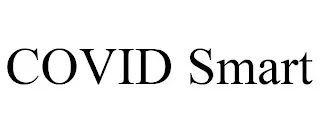
USPTO Refusal: Registration was refused because the applied-for trademark is a slogan or term that does not function as a trademark.
Class 041: Educational testing services; Analyzing educational tests scores and data for others
Rejected - Failure to Function
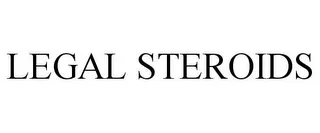
USPTO Refusal: Registration is refused because the applied-for mark is generic for applicant’s services.
Class 035: On-line retail store services featuring dietary supplements
Rejected - Merely Descriptive
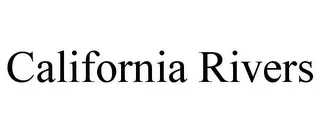
USPTO Refusal: Registration is refused because the applied-for mark merely describes a characteristic of applicant’s services.
Class 035: Public advocacy to promote awareness of river conservation in California.
Descriptive elements within a trademark are forced to be disclaimed at the USPTO. Here are some examples of disclaimers (Read more about disclaimers here):
Disclaimer for "RANK"

Disclaimer Requirement: Applicant must disclaim the wording RANK because it is merely descriptive of a feature, purpose, or use of applicant's services.
Class 035: Marketing consulting; Marketing services; Search engine optimization for sales promotion
Disclaimer for "BROS"
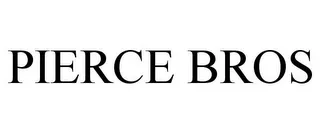
Disclaimer Requirement: Applicant must disclaim “BROS” because such wording appears to be generic in the context of applicant’s goods.
Class 030: Coffee
Disclaimer for "PAY"

Disclaimer Requirement: Applicant must disclaim the wording “PAY” because it is not inherently distinctive.
Class 035: Electronic payment services, namely, providing, processing, verifying, and authenticating payments, credit and debit card transactions, and bill payment transactions with retailers, merchants, and vendors;
How many similar or "formative" trademarks already exist in the marketplace for your goods or services?
Multiple "HELLO" trademarks in Class 035:
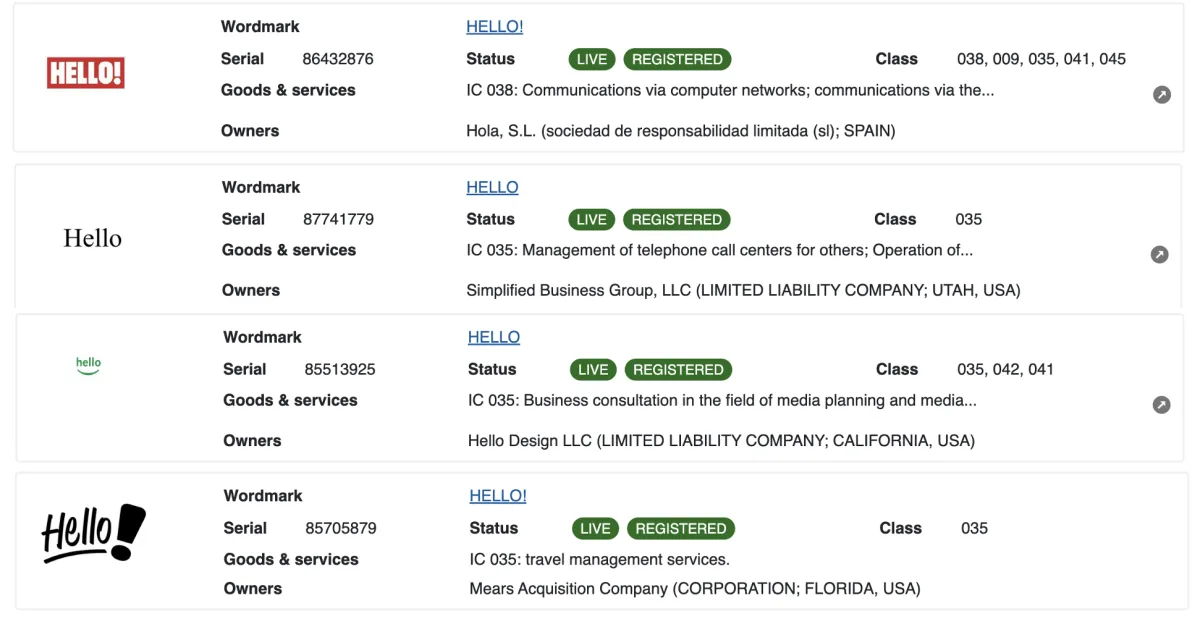
Multiple "HELLO" formative trademarks in Class 035:
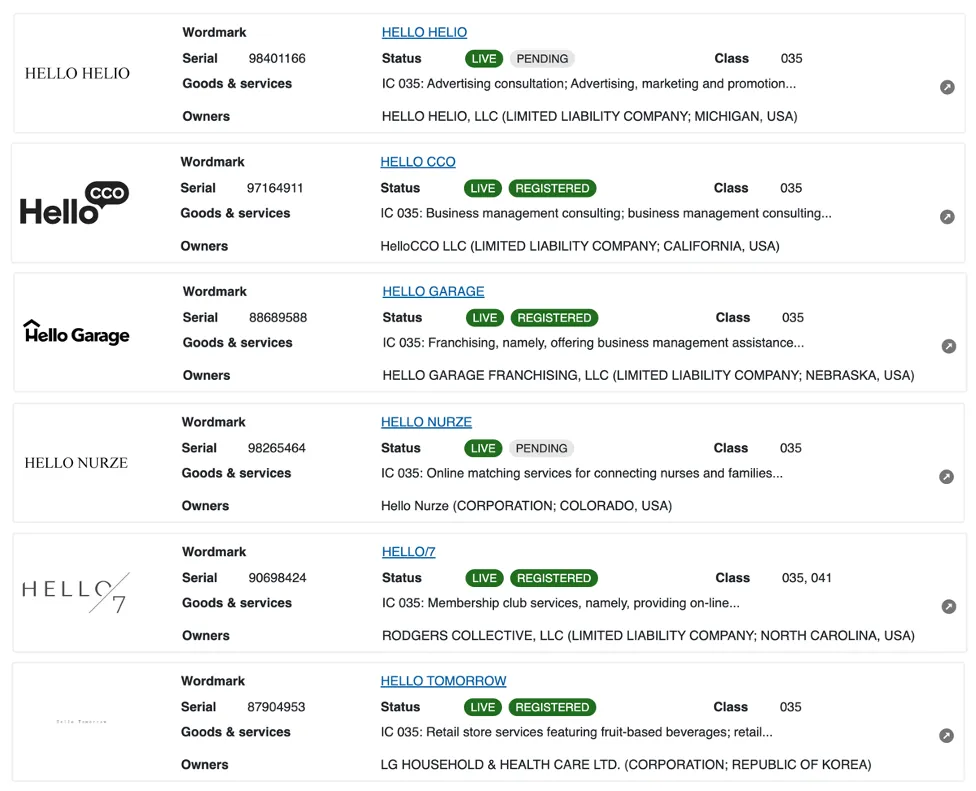
The strength of a trademark comes down to multiple factors and it is always best to consult with an attorney regarding the best strategy for you and your brand.
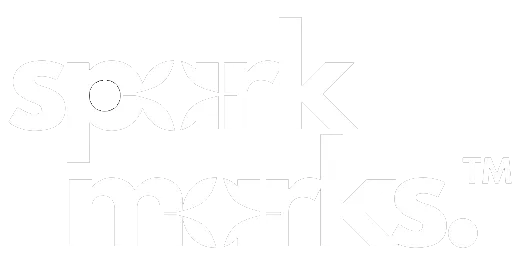
Disclaimer: The information contained on this website is provided for informational purposes only and should not be construed as legal advice. SparkMarks™ is not a law firm. SparkMarks™ makes no representations or warranties of any kind, express or implied, about the completeness, accuracy, reliability, suitability, or availability with respect to the information contained on our site for any purpose. SparkMarks™ provides the information contained on this site for general informational and educational purposes only and should not be construed to be legal advice or a substitute for legal counsel. Any reliance you place on such information is therefore strictly at your own risk. Should you have questions or need legal advice, please contact an attorney. Your use of this website is also subject to our Terms of Use and Privacy Policy. Copyright © 2024. All Rights Reserved. SparkMarks™